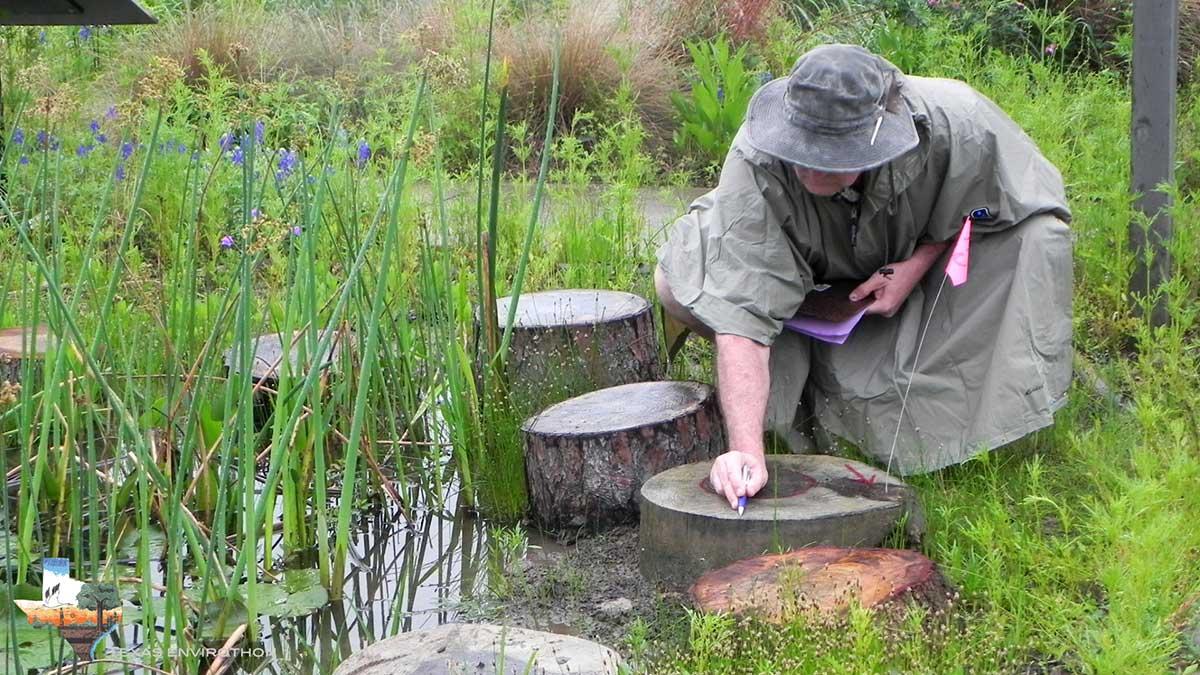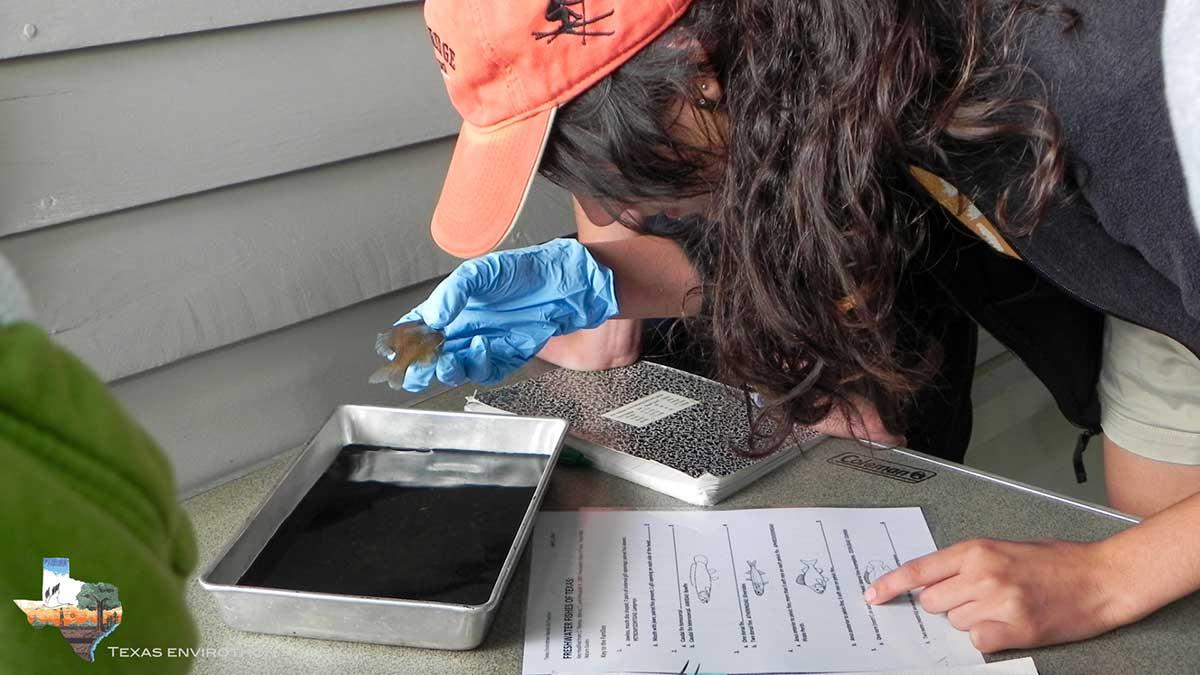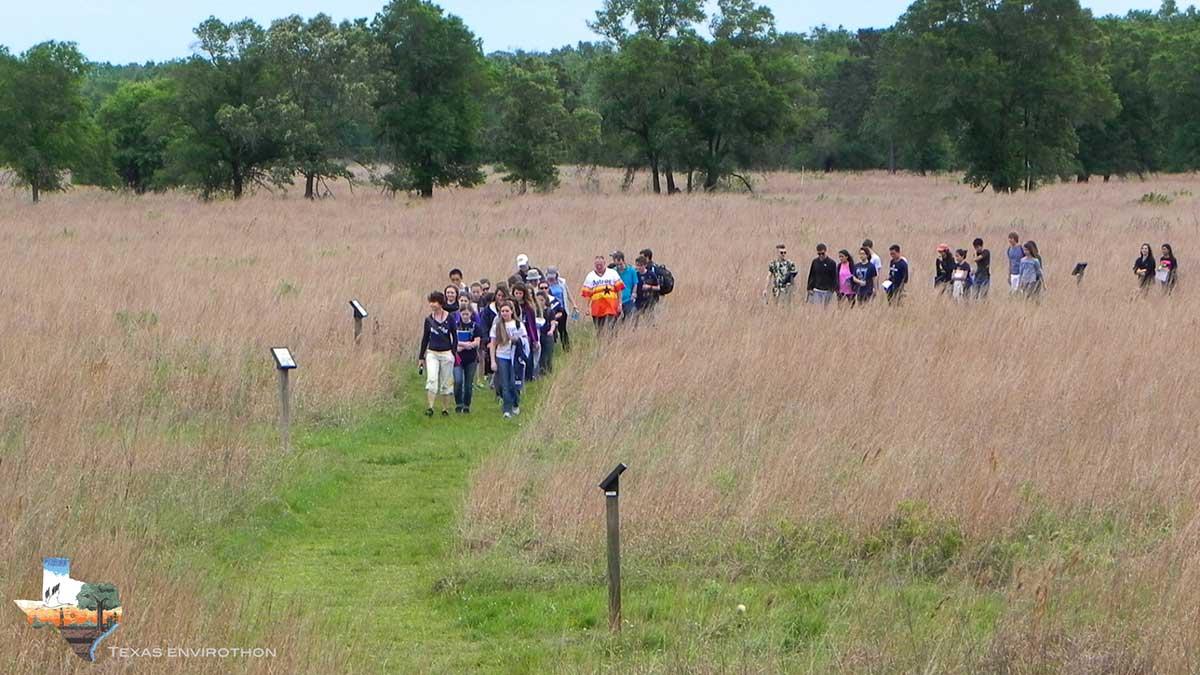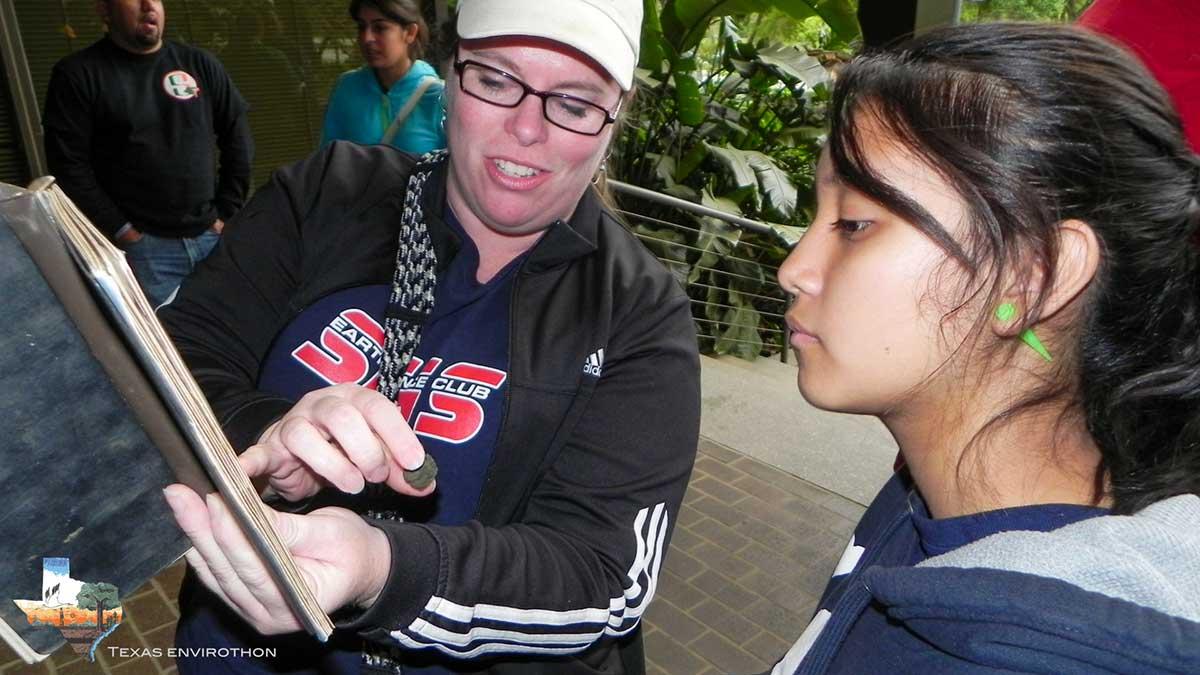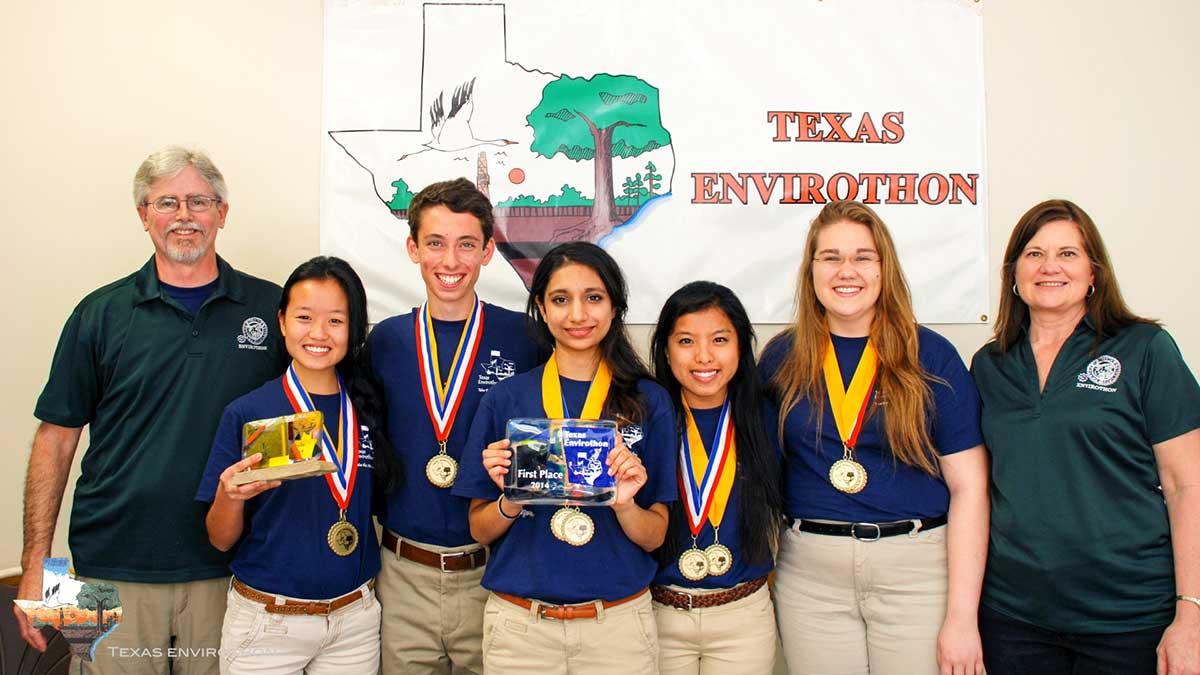
2014 Texas Envirothon
Houston
April 5-7, 2014
Results
- 1st Place: Academy of Science and Technology, Team Alligator
- 2nd Place: The Woodlands College Park, Team 2 placed
- 3rd Place: Richardson High School, Team C
- Extra Mile Award: J Frank Dobie High School, Awesome
- Rookie Team Award: Georgetown 4-H
| Area of Study | Top Score | School, Team |
|---|---|---|
| Aquatics | 96/100 | John Cooper School, Team B Richardson High School, Team A |
| Forestry | 82/100 | Academy of Science and Technology, Alligator Richardson High School, Team C |
| Soils | 96/100 | Academy of Science and Technology, Alligator |
| Wildlife | 90/100 | Academy of Science and Technology, Chinchila Georgetown 4-H |
| Current Issue | 96/100 | John Cooper School, Team A |
| Oral Presentation | 174/200 | J Frank Dobie High School, Awesome |
Sponsors
- Access Midstream
- Eastman Chemical Company
- Enbridge
- ExxonMobil Baytown
- Entergy
- GSI Environmental
- Jacob and Terese Hershey Foundation
- Capital Farm Credit
- University of Houston-Clear Lake/Environmental Institute of Houston
- Gulf Coast Waste Disposal Authority
- JSC Federal Credit Union
- National Conservation Foundation
- Texas Association of Environmental Professionals
- Association of Texas Soil & Water Conservation Districts
- Law Ranch Cattle Company
- Moondog Farms
- Natural Resources Conservation Service
- North American Envirothon/U.S. Fish and Wildlife Service
- Reilly Realtors, LLC
- Soil & Water Conservation Districts:
Alamo, Bowie County, Coastal Plains, Harris County, Montgomery County, Upshur Gregg, Walker County - Texas A&M AgriLife Extension Service
- Texas A&M Forest Service
- Texas Association for Environmental Education
- Texas Master Naturalists
- Texas Parks and Wildlife Department
- Urban Harvest
- Hosts
- Armand Bayou Nature Center
- University of Houston-Clear Lake
Participating Schools
- Academy of Science and Technology, The Woodlands
- The John Cooper School, The Woodlands
- The Woodlands College Park High School, The Woodlands
- Richardson High School, Richardson
- South Grand Prairie High School, Grand Prairie
- Harlingen South High School, Harlingen
- Carroll Senior High School, Southlake
- J Frank Dobie High School, Houston
- Georgetown 4-H, Georgetown
- St Thomas High School, Houston
- Sam Houston High School, Arlington
- Science Academy of South Texas, Mercedes
- Rio Hondo High School, Rio Hondo
Press Release Final Scores Photo Gallery
Resources
Key Topics & Learning Objectives
Sustainable Agriculture/Locally Grown
Key topics
- Understanding the three pillars of sustainable agriculture and the indicators of sustainable farming.
- Understanding how ecosystems function and the services they provide. Good soil health is the foundation of a healthy ecosystem.
- How sustainable farming practices enhance and protect soil health, water quality and water quantity, biodiversity, manage insect pests, disease, and weeds.
- The importance of local and regional foods systems to sustainable agriculture.
Learning Objectives
- Define sustainable agriculture. Understand the importance of moving toward these farming systems to conserve natural resources, mitigate climate change, reduce erosion and protect water quality and quantity and promote pollination.
- Basic knowledge of soil science including its physical, chemical and biological processes and its vital role in sustainable farming.
- Comprehension of farming practices that build soil organic matter such as composting, crop rotations, cover crops, conservation tillage, and management intensive grazing systems.
- Understand irrigation best management practices that reduce water use such as conservation tillage, cover crops, plant selection, precision agriculture, water re-use, and sub-surface drip irrigation.
- Knowledge of the role pollinators play in farming and ways to attract them.
- Understand integrated pest management and biological pest control techniques used to prevent insect pest, disease, and weed problems.
- Define organic agriculture as an example of a sustainable agriculture system. Give specifics on why it is sustainable and how it might not be. Describe the growth in organic production since the late 1990s.
- Enumerate ways farmers can reduce their reliance on fossils fuels by increasing farm efficiency and using alternative fuels.
- Describe the economic, social, and environmental benefits of sustainable agriculture to local communities.
- Learn the ways farmers market their food locally and regionally. Understand the meaning of CSAs, food hubs, farmers markets and farm to school.
Current Issue: Recommended Resources
- Carolyn Steel: How food shapes our cities (Video)
- Dan Barber: How I fell in love with a fish (Video)
- How buying heirloom seeds defends our habitat from invasion
- Marla Spivak: Why bees are disappearing (Video)
- Michael Pollan: The Omnivore's Dilemma (Video) – Recommended reading: Omnivore's Dilemma by Michael Pollan
- Polyface Farm (Video)
- SARE Poultry Waste Projects
- SARE Promoting Local Food Systems
- SARE Researching Alternative Fuels
- Southern Region SARE Addresses Water Quality
- Southern Sustainable Agriculture Research & Education (SARE)
- Square-foot Gardening
- The Healthy Farm: A Vision for U.S. Agriculture
- The Howdy Farm at Texas A&M University
- Toward a Sustainable Agriculture
- Trap Cropping in Vegetable Production: One Tool for Managing Pests
- Urban Harvest
NAE Resources
- Agroforestry: Sustaining Native Bee Habitat for Crop Pollination
- A Whole-Farm Approach to Managing Pests
- Building Soils for Better Crops
- Indicators of Sustainable Agriculture
- Organic Production Systems
- Know Your Farmer, Know Your Food Compass - The What and Why of Local and Regional Foods
Additional Resources for Aquatics
- Fishery and Aquaculture Statistics (PDF)
- Global Aquaculture Production – This site summarizes definition of aquaculture, types of aquaculture, and statistical summaries of the global numbers in output, aquaculture types, etc.
- Polyculture of Fishes in Aquaponics and Recirculating Aquaculture (PDF) – Polyculture is an important topic when considering sustainable practices. This paper explains polyculture and why it works.







